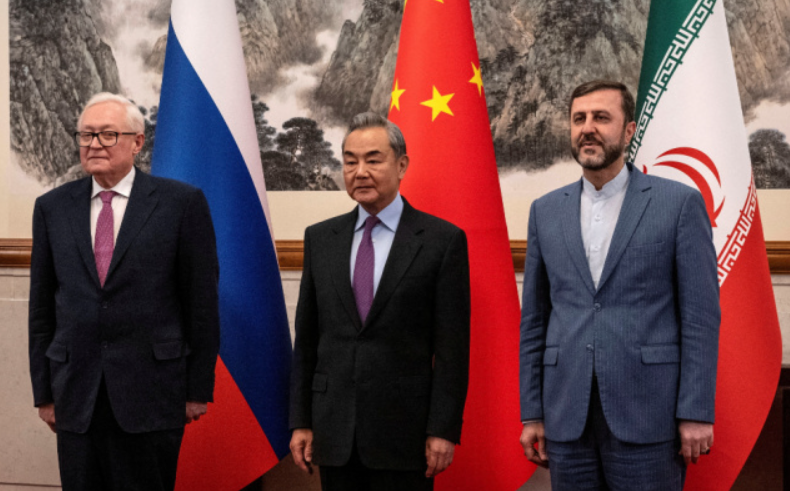
Iran Pursues Strategic Nuclear Talks with Russia and China

Iran’s nuclear talks with Russia and China mark a significant shift in the country’s strategic direction. In an official statement, Iran’s Ministry of Foreign Affairs announced the initiation of high-level discussions with Moscow and Beijing focused on peaceful nuclear cooperation, technology sharing, and economic resilience in the face of Western sanctions.
Learn More About : Bryan Mbeumo Joins Manchester United, Admits He’s a Ronaldo Fan
A Strategic Pivot to the East
Iran’s decision to re-engage in diplomacy with Eastern powers signals a calculated move toward a multipolar world order. By deepening Iran’s nuclear talks with Russia and China, Tehran is actively seeking alternatives to Western-dominated negotiations, particularly those involving the United States and Europe, which have often stalled or collapsed due to political tensions.
Foreign Minister Hossein Amir-Abdollahian emphasized that these talks are aligned with Iran’s long-term strategic goals, which include expanding its nuclear energy capacity for peaceful purposes and creating stronger alliances beyond the West.
Russia and China’s Stake in the Talks
Both Russia and China have historically supported Iran’s right to pursue peaceful nuclear energy under international regulations. For China, Iran plays a key role in the Belt and Road Initiative (BRI), offering critical connectivity and energy access. For Russia, Iran represents a reliable partner in the Middle East, especially amid conflicts like Syria and growing competition in global energy markets.
Iran’s nuclear talks with Russia and China are expected to explore not only the technical aspects of nuclear development but also frameworks for economic collaboration, protection from Western sanctions, and mutual defense arrangements in the future.
Western Concerns and Global Reactions
Unsurprisingly, Western powers have responded with caution. The United States and European nations worry that Iran’s nuclear talks with Russia and China could sideline existing international agreements and dilute the oversight of institutions like the International Atomic Energy Agency (IAEA).
There are also fears of sensitive nuclear technology transfers and a potential buildup of Iran’s military capabilities. Despite these concerns, Iranian officials have reiterated that their nuclear program is solely for energy production and medical research, not weapons development.
Conclusion: A Shift in Global Nuclear Diplomacy
The move to deepen Iran’s nuclear talks with Russia and China represents more than a regional shift — it’s a strategic rebalancing on the global stage. As Iran distances itself from Western-centric negotiations, it positions itself as a key player in an emerging alliance of Eastern powers.
If successful, these talks could pave the way for enhanced technological cooperation, reduced dependency on the West, and a new era of nuclear diplomacy shaped by Eastern partnerships.